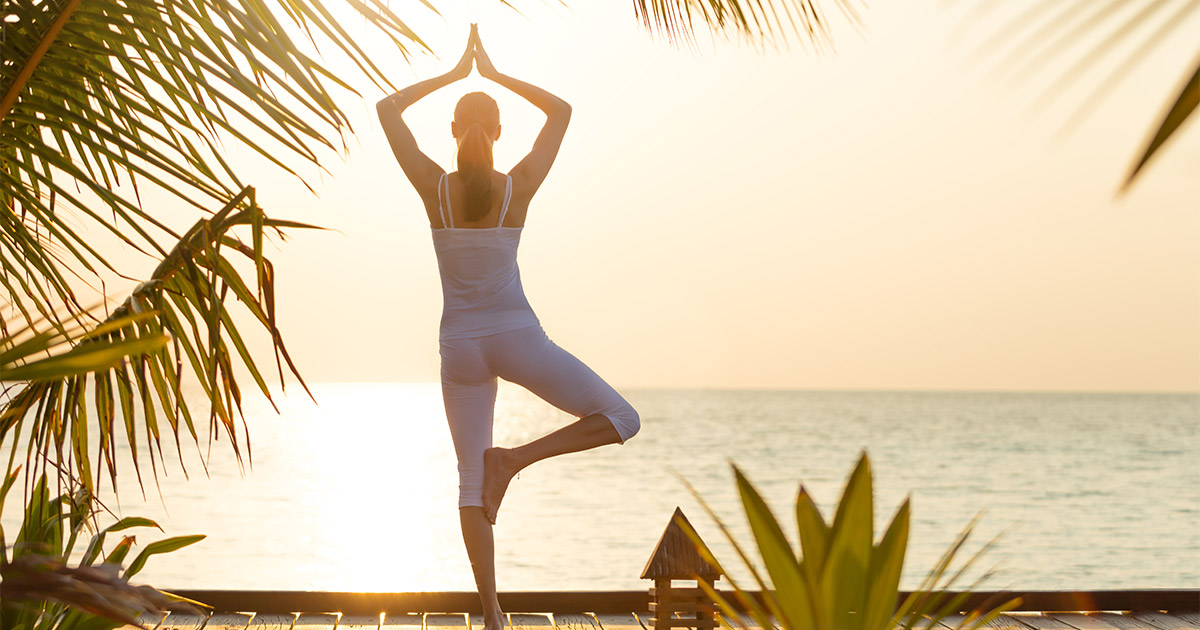
In the iconic 1980’s film Karate Kid, Mr. Miyagi took young Daniel under his wing to train him in karate. Daniel eventually learned that karate lessons were life lessons. As Mr. Miyagi told Daniel:
“Lesson not just karate only. Lesson for whole life. Whole life have a balance. Everything be better.”
– Mr. Miyagi
We can take this quote to heart, as we all seem to aim for “balance” in our lives. As an educator before the coronavirus pandemic, before schools were closed, before your life turned upside down, you had a schedule. You spent your days planning, teaching, and grading (among everything else!). Your students also had a schedule, went to class, did after school activities, and completed homework.
Having a routine, structure, and schedule helped provide balance to everyone’s lives (even if it wasn’t perfect)! But when things change or when they’re challenging, we feel out of balance. How can we maintain balance in a time of uncertainty? Try these ideas:
Identify responsibilities vs activities
Think about the responsibilities you have – such as duties for your job and your students, managing finances and the household, or caring for your family. Now think about other activities that you enjoy doing. (Hint: they can be in both categories!) Next, complete the Balancing My Responsibilities vs My Activities exercise. You could even do this activity alongside your students. Then you can compare notes on strategies to shift, change, or even remove certain activities in our lives to achieve more balance.
Identify what’s overwhelming
When we say “my life is out of balance,” it’s often because we’re feeling overwhelmed. But can you identify exactly what is making you feel overwhelmed? Is there anything you can do to improve the situation? Can you ask for help? Is there something you can do less of, or take off your plate entirely? Identifying what’s overwhelming us can give us power to hone in on a solution.
Take a break
If you have a lot of work to do, you may feel the need to work as much as you can. But this can lead to exhaustion and burnout. Though it may seem counterintuitive, taking breaks actually makes you more productive and creative. For each hour of work, even a five-minute walk, stretch, or making some tea can make a big difference on your motivation and physical health. If you need to set a calendar appointment to remind yourself to take breaks, do it! Encourage your students to take short breaks too.
Avoid multitasking
Think you’re being super productive as you’re finding resources for your next lesson, emailing a colleague, watching the news on TV, and texting your sister at the same time? Think again. Though many people think “I’m great at multitasking,” the reality is the human brain does not function well while being pulled in different directions. We only have so much working memory in our brains.
The best advice: focus on one thing at a time. Set yourself up for success by avoiding distractions or multitasking. And if this seems out of your realm, try it for even a few minutes at a time and see how it feels!
Limit screen time
If you are in shelter-in-place, our devices are the go-to source for work, news, entertainment, and connection with others. Netflix and other streaming providers have seen a surge in usage in the past few weeks. But just because media is available, doesn’t mean you have to turn it on. Incorporate a daily “digital detox” where there are no screens. Turn your phone and notifications off. Perhaps your whole family can go screen-free once a day, for a family reading hour, to play a board game, or cook a meal together. For more ideas, check out 5 Ways to Balance Screen Time.
Track your time
When someone says “I don’t have enough time to exercise” or “I ran out of time to read my favorite book,” I find myself playing devil’s advocate. We can find the time if we track our time. Whether it is Google Calendar or a handwritten planner, try planning out each time slot of your day, and stick to the schedule you set for yourself. In doing this, you commit time to your goals (getting get that exercise in or enjoying your favorite book)! You will also be more productive in the chunks of time that you do have (I have an hour to prep – let’s do this)!
Ask yourself: Is this adding value to my life?
This may sound like a profound question, but one worth asking. Yes, we all have to do things we don’t necessarily want to do, and we have obligations we must fulfill (laundry and taxes aren’t my favorite). But other times, you have the choice of what to do with your time. Does what you’re doing add value to you? Is it healthy for you? Is it meaningful? Make time (not excuses!) for the things that add value to your life. This will help you feel more balanced.
“Better learn balance. Balance is key. Balance good, karate good. Everything good. Balance bad, better pack up, go home. Understand?”
– Mr. Miyagi
So, remember: If balance is good, everything’s good.
Kelly Mendoza is Senior Director, Education Programs at Common Sense Education where she oversees education programming and content strategy, including the Digital Citizenship Curriculum, interactive games, and online professional development for schools. She has developed research-based curricula in digital citizenship, media literacy, information literacy, and social-emotional learning (SEL). She develops programs that help students and schools create a positive culture around learning and technology. She has also developed educational resources and curriculum for Lucas Learning, the Media Education Lab, and PBS Frontline. Kelly has a PhD in Media & Communication from Temple University. Follow her on Twitter: @kellymendoza
Categorized as: Tips for Teachers and Classroom Resources
Tagged as: Toolkit: Maintain Balance, Trauma and Resilience
